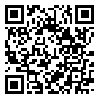Volume 9, Issue 3 (volume9, Issue 3 2021)
CPJ 2021, 9(3): 41-53 |
Back to browse issues page
Download citation:
BibTeX | RIS | EndNote | Medlars | ProCite | Reference Manager | RefWorks
Send citation to:



BibTeX | RIS | EndNote | Medlars | ProCite | Reference Manager | RefWorks
Send citation to:
Asadollahi P, Salarifar M H, Talebzadah Shoshtari L. The Effectiveness of Training Metacognitive Beliefs and State on Working Memory of Elementary School Students. CPJ 2021; 9 (3) :41-53
URL: http://jcp.khu.ac.ir/article-1-3434-en.html
URL: http://jcp.khu.ac.ir/article-1-3434-en.html
University of Birjand , mhsalarifar@birjand.ac.ir
Abstract: (8368 Views)
| The purpose of this study was to investigate the effectiveness of training metacognitive beliefs and state on working memory of elementary school students. This study was a quasi-experimental study with a pre-test, post-test, follow-up and a control group design. The population consisted of elementary school students in Birjand. Forty-six students in the sixth grade were recruited via convenience sampling method. The participants were allocated to the experimental group (n = 23) and the control group (n = 23). The metacognitive training package was used to teach metacognitive beliefs and state. Moreover, the computer image recognition test (N-Back) was used to evaluate working memory. Data were analyzed using Mann Whitney U, Friedman and Wilcoxon tests. The findings indicated a significant difference between the experimental group and the control group. Furthermore, the experimental group showed higher levels of mean in working memory scores compared to the control group. The results of the follow-up test suggested the lasting effect of the training. According to the results of the present study, it can be concluded that training metacognitive beliefs and state might enhances students’ working memory. |
Type of Study: Research |
Subject:
psychology of human behavior
Received: 2021/05/30 | Accepted: 2021/09/29 | Published: 2021/10/2
Received: 2021/05/30 | Accepted: 2021/09/29 | Published: 2021/10/2
References
1. Baddeley, A. (2003). "Working memory and language: An overview." Journal of communication disorders, 36(3), 189-208. [DOI:10.1016/S0021-9924(03)00019-4]
2. Beaman, C. P., et al. (2014)."The effects of distraction on metacognition and metacognition on distraction: evidence from recognition memory." Frontiers in Psychology, 5, 439. [DOI:10.3389/fpsyg.2014.00439]
3. Beukers, A. O., et al. (2021). "Is Activity Silent Working Memory Simply Episodic Memory?" Trends in Cognitive Sciences, 25(4), 284-293. [DOI:10.1016/j.tics.2021.01.003]
4. Bozorgian, H., et al. (2020)." Metacognitive intervention and awarness:Listeners with low working memory capacity." International Journal of Listening, 1-14.
5. Bush, G., et al. (2008). "Functional magnetic resonance imaging of methylphenidate and placebo in attention-deficit/hyperactivity disorder during the multi-source interference task." Archives of General Psychiatry, 65(1), 102-114. [DOI:10.1001/archgenpsychiatry.2007.16]
6. Capobinaco, L., et al. (2019). "What comes First Metacognition or Negative Emotion? A Test of Temporal precedence." Frontiers in psychology. 10.2507. doi.org/10.3389/Fpsyg.2019.02507. [DOI:10.3389/fpsyg.2019.02507]
7. Chai, W. J., et al. (2018). "Working memory from the psychological and neurosciences perspectives: A review." Frontiers in Psychology, 9, Article 401.
https://doi.org/10.3389/fpsyg.2018.00401 [DOI:10.3389/fpsyg.2018.00401.]
8. Delaware, Ali. (2008). "Research methods in psychology and educational sciences." Tehran: Payame Noor University. [Persian].
9. Grinschgl, S., et al. (2020). "From metacognitive beliefs to strategy selection: does fake performance feedback influence cognitive offloading?" Psychological Research, 1-13. [DOI:10.1007/s00426-020-01435-9]
10. Hamedali, B., et al. (2021). "The Effectiveness of Cognitive Rehabilitation Therapy on Cognitive Functions (Working Memory, Concentration, and Attention) of Adolescents Living in Boarding Schools." Avicenna Journal of Neuro Psycho Physiology, 8(2), 96-101.
11. Komori, M. (2016)." Effects of working memory capacity on metacognitive monitoring: A study of group differences using a listening span test." Frontiers in psychology, 7, 285. [DOI:10.3389/fpsyg.2016.00285]
12. Jasiurkowski, S. (2021). "Memory, metacognition and problem solving." https://www.linkedin.com/pulse/memory-metacognition-problem-solving-dr-stan-jasiurkowski?trk=public_profile_article_view.
13. Jones, J. S., et al. (2020). "The academic outcomes of working memory and metacognitive strategy training in children: A double‐blind randomized controlled [DOI:10.1111/desc.12870]
14. trial." Developmental science, 23(4), e12870.
15. O'Grady, W. (2005)." How children learn language." Cambridge University Press, 50-52. [DOI:10.1017/CBO9780511791192]
16. Perfect, J.T. & Schwartz. B. L. (2004)." Applied metacognition (pp.15-39)." Cambridge university press.
17. Pradhan, S., & Das, P. (2021)." Influence of Metacognition on Academic Achievement and Learning Style of Undergraduate Students in Tezpur University." European Journal of Educational Research, 10(1), 381-391. [DOI:10.12973/eu-jer.10.1.381]
18. Salguero, J. M., et al. (2020)." Individual differences in anger and displaced aggression: The role of metacognitive beliefs and anger rumination." Aggressive Behavior, 46(2), 162-169. [DOI:10.1002/ab.21878]
19. Shin, J. (2020)."A meta-analysis of the relationship between working memory and second language reading comprehension: Does task type matter?" Applied Psycholinguistics, 41(4), 873-900. [DOI:10.1017/S0142716420000272]
20. Soleimani, E., et al. (2020)."The effectiveness of rehabilitation of cognitive-metacognitive strategies on visual memory and memory span in the elderly." Journal of Research in Psychopathology, 1(3), 16-23.
21. Spiess, M. A., et al. (2015)." Prospective memory, executive functions, and metacognition are already differentiated in young elementary school children." Swiss Journal of Psychology, 74(4), 229-241. [DOI:10.1024/1421-0185/a000165]
22. Sulaiman, T., et al. (2020)." Primary science teachers' perspectives about metacognition in science teaching." European Journal of Educational Research, (10)1, 75-84. doi: 10.12973/eu-jer.10.1.75 [DOI:10.12973/eu-jer.10.1.75]
23. Thongwichit, N., & Buripakdi, A. (2021)." A glimpse of metacognitive reading strategy instruction through modeling technique in ESP class at the tertiary level." LEARN Journal: Language Education and Acquisition Research Network, 14(1), 118-145.
24. Wells, A. (2011). "Metacognitive therapy for anxiety and depression:" Guilford press.
25. Wells, A. (2009). "Metacognitive Therapy for Anxiety and Depression."The Guilford Press. NewYork, NY.
26. Wells, A. (1995)." Meta-cognition and worry: A cognitive model of generalized anxiety disorder." Behavioural and cognitive psychotherapy, 23(3), 301-320. [DOI:10.1017/S1352465800015897]
27. Wells, A., & Matthews, G. (1996)." Modeling cognition in emotional disorder. The S-REF model." Behavior research and therapy. 34: 881-888. [DOI:10.1016/S0005-7967(96)00050-2]
Send email to the article author
| Rights and permissions | |
 |
This work is licensed under a Creative Commons Attribution-NonCommercial 4.0 International License. |






